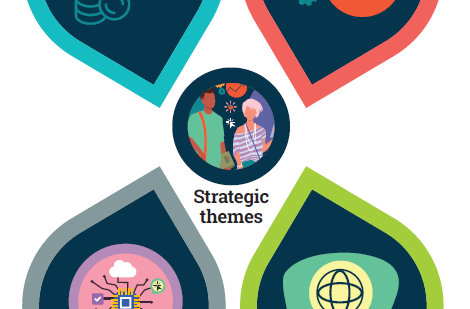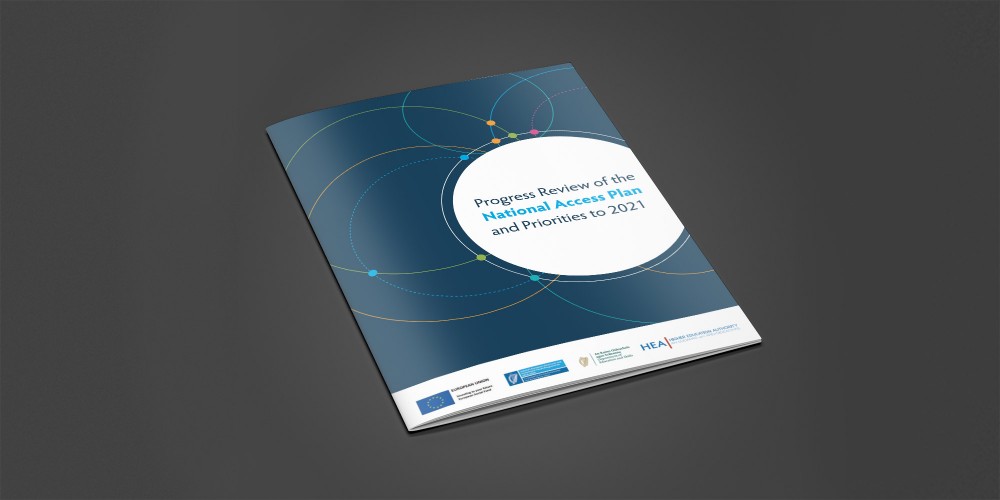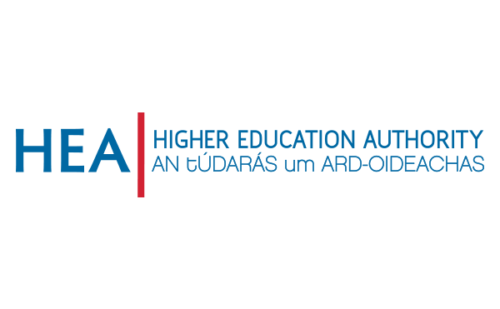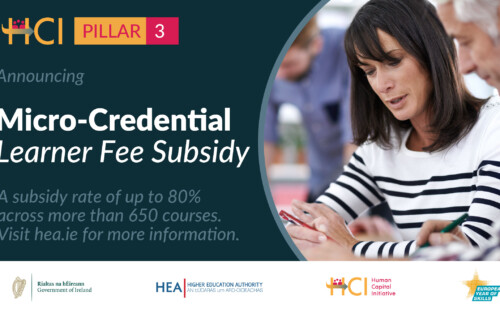
28 March, 2024
Access Policy
Posted: 21 December, 2018

The HEA welcomes the publication of the Progress Review of the National Access Plan for Equity of Access to Higher Education. The Review highlights the important achievements made since the launch of the plan in 2015. These include increases in participation rates across a number of the target groups, with particularly high increases for students with disabilities and among socio-economically disadvantaged groups. Increased Government funding of over €16 million in the form of the Programme for Access to Higher Education Fund (PATH) also represents a major contribution to ensuring increases in participation. Other key developments include the development of an Access Data Plan and the roll-out of student success initiatives across the higher education sector.
The Review identifies challenges remaining including the need to improve participation rates among mature students and Irish Travellers and ensuring that the higher education system has processes in place to respond to students’ needs as they start and progress through their studies.
The Progress Review makes a total of 16 recommendations across 7 themes and the HEA and DES will work together with the higher education sector and other stakeholders to implement these. These include revising upwards targets for some of the target groups identified in the National Access Plan and extending the term of the Plan itself to 2021.
Speaking today, the Interim Chief Executive of the HEA, Paul O’Toole, said:
“Ensuring equality of opportunity to higher education is key to the work of the HEA. In fact, it is identified as one of the HEA’s core functions under its founding legislation. Therefore the publication of the Progress Review today is timely as it shows the great strides that have been made by the Irish higher education sector to improve access to higher education. I particularly welcome the increase in participation rates among students with disabilities and socio-economically disadvantaged groups. The Report also notes the increased levels of Government funding made available to support access initiatives across the sector. I also wish to acknowledge the work of higher education institutions and other stakeholders in this area and their ongoing efforts, supported by the HEA and Department of Education and Skills, to encourage and support students from all backgrounds to enter and complete higher education. “
Notes for the Editor
Background
The third National Access Plan for Equity of Access to Higher Education, 2015-2019 (NAP) was published in December 2015. Equity of access to higher education is a national priority for the Government and the Department of Education and Skills (DES), recognising that while there have been significant increases in groups that historically had very low participation rates, there remain some considerable gaps and some groups continue to be underrepresented in higher education.
The vision of the current National Access Plan is to ensure that the student body entering into, participating in and completing higher education at all levels reflects the diversity and social mix of Ireland’s population. The NAP identified five priority goals for delivery over the period of the NAP. Within each goal, there are a specific set of objectives and actions that will contribute to the delivery of each goal.
The five goals are as follows:
Critically the Plan identifies the target groups that are currently being under-represented in higher education, which include entrants from socio-economic groups that have low participation in higher education, Irish Travellers, students with disabilities, first-time mature student entrants part-time/flexible learners and further education award holders. The Plan contains targets to increase participation rates by each of the identified groups.
Building on successive national access plans, the current NAP was developed following a major stakeholder consultation process which seeks to deepen our understanding of the barriers and identify potential innovative interventions for these groups that had persistently low participation rates. It contained a commitment to undertake a review of progress in the course of the Plan’s implementation and this report presents the outcome of this as a Progress Review.
Outline of process
The Progress Review was managed by the HEA in close consultation with the Department of Education and Skills and the National Access Plan Steering Group which oversees progress on the Implementation of the NAP. A Consultation process was facilitated involving a stakeholder consultation, a student consultation and one-to-one consultation meetings with key stakeholders in NAP implementation.
The Terms of Reference for the Review covered two areas:
Progress Review of the National Access Plan and Priorities to 2021

28 March, 2024

22 March, 2024
